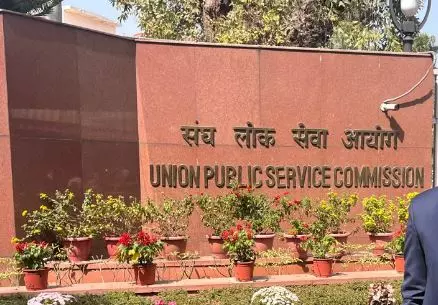
India is facing a severe shortage of IAS, IPS, and IFoS officers, putting pressure on administrative efficiency and law enforcement capabilities. As of January 2024, Department of Personnel and Training (DoPT) data shows a 19 per cent shortfall in serving IAS officers at 5,542 against the sanctioned strength of 6,858. Similarly, there are 4 thousand 469 officers in the IPS cadre and 5 thousand 55 officers, a difference of 11 percent. The IFoS is facing an even sharper deficit of 33 per cent, with only 2,151 officers against the sanctioned strength of 3,193. These shortages force officials to manage multiple departments and responsibilities, overburdening them and potentially affecting the quality of governance. State-level statistics highlight significant disparities. Uttar Pradesh has the highest IAS vacancies for direct recruitment (63), while Bihar leads in promoted comfalls (79). For IPS officers, Madhya Pradesh faces the largest gap among direct recruits (43) and Odisha leads in promotion vacancies (59). IFoS shows similar trends, with AGMUT cadre having the highest number of vacancies (105).
Recruitment through the annual UPSC Civil Services Examination has not kept pace with the growing gap. Officials suggest faster promotion of feeder cadres as a solution. Lateral recruitment is another option already adopted for some central roles, although it presents challenges in training admissions for specific administrative or law enforcement roles.
Policy makers should also rethink how to deploy IAS and IPS officers. Certain roles in domains such as statistics, economic affairs, and intelligence can be filled by domain experts, drawing specialized talent from different fields. Addressing these vacancies requires urgent and innovative strategies to ensure that India’s governance structure remains strong and effective.
A high-stakes clash at Kerala’s Babudom
DKB reported last week that the father feud is intensifying in Kerala. In a rare and bold move, IAS officer N. Prashant (2007 batch, Kerala cadre) has openly challenged his senior colleagues, alleging serious misconduct that could have far-reaching consequences for the integrity of India’s administrative structure. Prashant, who is currently under suspension, has issued a legal notice to Kerala Chief Secretary Sharda Muralitharan, Additional Chief Secretary A Jayathilak, Director of Industries K Gopalakrishnan and a leading state newspaper accusing them of forging documents and criminal conspiracy.
At the heart of the controversy is an ex-parte inquiry led by Mr. Jayathilak, who accused Mr. Prashanth of misplacing official files and irregular attendance during his tenure as Unnathi’s CEO. According to the legal notice, the investigation lacked government authority and relied on fabricated documents uploaded to the government’s e-office system. Mr. Prashanth claims that these documents, allegedly signed by Mr. Gopalakrishnan, were hastily manipulated in August 2023 before being removed from departmental records.
The legal notice further alleged that despite being formally apprised of these irregularities on November 14, 2024, the Chief Secretary failed to act effectively enabling continued manipulation of government records. Prasanth called for a public apology from the accused and a thorough investigation into the actions of Mr. Jayathilak and Mr. Gopalakrishnan.
The episode exposes deep rifts within the bureaucracy and raises serious questions about governance and accountability. When senior officials are accused of such serious misconduct, the foundations of administrative integrity come into question. If proven, the allegations could set a dangerous precedent, undermining public confidence in government institutions.
The Pacific case is a wake-up call for systemic reforms to protect whistleblowers within the civil service while ensuring accountability at all levels. The spotlight is now on how the Kerala administration will address these explosive claims.
Power Politics: Why can acting DGP of UP stay the same?
Prashant Kumar, Acting DGP of Uttar Pradesh, in Yogi-Modi land, is learning the hard way that the word “acting” in a job title can take on a life of its own. A 1990-batch IPS officer, Mr. Kumar has been wearing the “Acting” badge since January this year, hoping to drop the qualifier and make things official. But alas, the political wind seems to be blowing in a different direction.
Early last month, when the Yogi Adityanath government unveiled its shiny new rules for appointing full-time DGPs, chatter in babu circles suggested a shoo-in for Mr. Kumar. After all, he had occupied the fort for almost a year. But in a sudden twist, Mr. Kumar’s name has been quietly removed from the list of contenders, sources informed DKB.
Here’s the rub: Under the revised rules, only those IPS officers who have at least six months left in service are eligible for higher posts. Mr. Kumar, set to retire in May 2025, doesn’t fit the timeline — unless someone pulls some bureaucratic strings to extend his service by 18 months. However, that requires the Centre’s blessings, and the Yogi government has no appetite for such complications.
Therefore, Mr. Kumar remains the “acting” DGP. Whether it is an oversight or a calculated favoritism in the complex dance of Yogi-Modi politics, one thing is clear: sometimes, in the corridors of power, being in the running is a privilege that can be taken away before the finish line. in sight